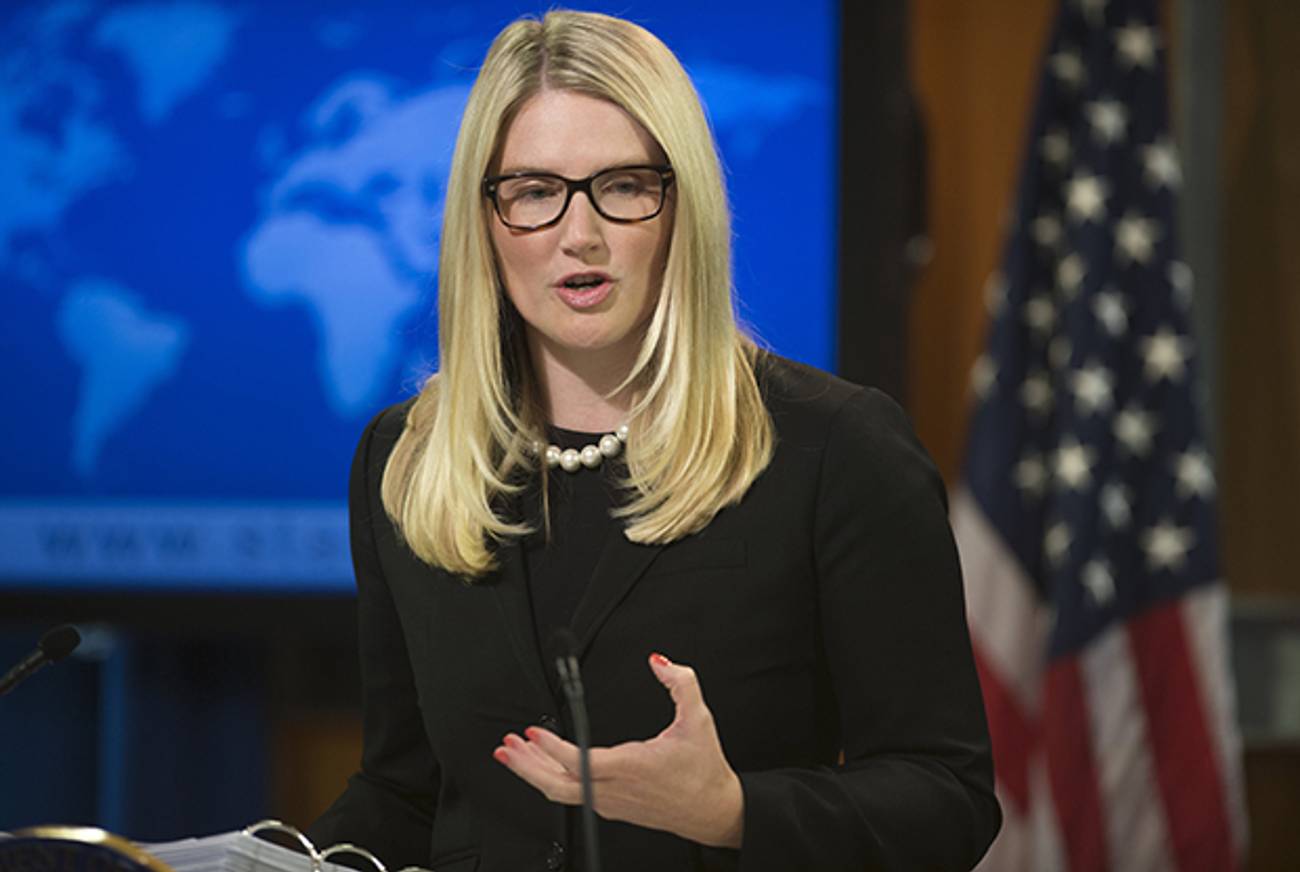State Department Spokesperson: Gaza Strikes Are War Crimes
But are U.S. drone attacks on Yemen, Pakistan, and Somalia any different?




On Thursday, U.S. State Department spokeswoman Marie Harf pronounced three Israeli air strikes in and around U.N. facilities in Gaza during this summer’s conflict with Hamas to have been unjustified—and therefore war crimes. According to Harf, “the suspicion that militants are operating nearby does not justify strikes that put at risk the lives of so many innocent civilians.” She added that “Israeli authorities say they’re investigating. We expect these to be investigated thoroughly and promptly, and we’ll continue pushing them to do so.”
Now, it is easy to dismiss Harf’s remarks as so much blather, issued without any access to operational or investigative information—if not for the rich irony of her former job as an intelligence analyst for the CIA. It is no secret that the CIA’s drone wars in Pakistan, Yemen, and Somalia have escalated markedly since President Obama took office, with an estimated 390 extra-judicial assassinations and bombings which have killed at least 2400 people, with some estimates closer to four thousand. It is also no secret that many of the people killed and injured by the CIA’s drones—and other American weaponry—have been civilians.
Luckily for Harf, international human rights groups have already completed surveys of the results of the CIA’s extra-judicial killing spree:
• According to a report by U.N. investigator Ben Emmerson, U.S. drone strikes have killed more than 2200 people in Pakistan alone, hundreds of whom have been verified to have been innocent civilians. The U.S. has still not replied to an official U.N. request to release comprehensive data about civilian casualties in those strikes.
• A Human Rights Watch investigation of six selected U.S. airstrikes in Yemen showed that at least 57 of the 82 people killed in those strikes were civilians, including a pregnant woman and her children.
• An Amnesty International investigation of nine suspected US drone strikes in North Waziristan found strong evidence that at least 30 civilians were killed in four of the strikes it investigated:
“In October 2012, 8-year-old Nabeela ventured out with her 68-year-old grandmother Mamana Bibi to do daily chores in their family’s large, open field. Moments later, Mamana was blasted into pieces by a US. drone strike that appears to have been aimed directly at her. Amnesty International did not find any evidence she was endangering anyone, let alone posing an imminent threat to the US. Yet a year has passed and the US government has not acknowledged Mamana Bibi’s death, let alone provided justice or compensation for it.”
And those are just official reports by mainstream human rights organizations.
If Harf is genuinely concerned about the morality of air strikes—a reasonable concern—she might press her own bosses to investigate the following:
• The Dec. 12, 2013 CIA drone strike on a wedding convoy near the town of Radda in the al-Baitha province of Yemen. The resulting carnage included 17 dead family members and friends, and nearly twice that many wounded, which seems like quite a way to celebrate a wedding. “If a drone strike hit an American wedding, we’d ground our fleet,” wrote Conor Friedersdorf in the Atlantic. Needless to say, that didn’t happen.
• The Sept 2, 2012 aerial demolition of a minibus in the village of Sarar that killed 12 passengers, including three children and a pregnant woman.
• The July 6, 2012 drone attack in the village of Zowi Sidgi that killed 10 male laborers who had gathered in a tent for dinner. As rescuers arrived at the scene to treat the wounded, another round of missiles killed eight more people.
• If you like irony, you can go all the way back to Dec. 17, 2009, one week after Obama was awarded the Nobel Peace Prize, when the U.S. fired a cluster-bomb-laden cruise missile from a submarine at a small encampment in one of the poorest regions of Yemen, killing at least 41 civilians, including 21 children and 12 women, five of whom were pregnant.
No Americans—CIA managers, analysts, drone operators, or the politicians who approve their programs—have been brought before a court of law for any of these killings, let alone convicted of any crimes.
Which makes one wonder: Are Western government officials like Harf who make sweeping statements about Israeli culpability in Gaza really so ignorant of what a war against terrorists who hide behind civilians looks like now—and what can go wrong? Or is their rush to accuse and convict Israel before any of the evidence is in really an attempt—whether conscious or not—to deflect attention from the inherent ugliness of their own common practices?
Related: What Judaism Says About Drones